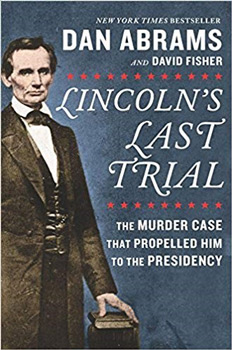
Robert Roberts Hitt, dedicated court reporter, prepared a remarkable transcript of a murder case heard in Sangamon County, Illinois, in the summer of 1859. The case involved everyone in the community of Pleasant Plains, including Abraham Lincoln. It was Lincoln who represented “Peachy” Quinn Harrison in the murder of Greek Crafton, a young man who did much of his training as a clerk under Lincoln.
More books have been published about Abraham Lincoln than any other president of the United States. Who cannot recognize his profile, his photograph, and perhaps his manners? Most Americans think of him as the 16th president, the man who freed the slaves, and a plain man with little sophistication.
Those who believe all the above statements about Lincoln have read little of the material about this great leader. He was not a country bumpkin although he was born in a log cabin and was a super rail-splitter. He could quote Shakespeare with the best, recited Biblical passages like a parson, and knew the intrinsic value of law as well as any attorney of his time.
Dan Abrams and David Fisher, both attorneys, wrote Lincoln’s Last Trial: the Murder Case That Propelled Him to the Presidency. The book is based on trial records taken by Robert Roberts Hitt, an early court reporter who copied a nearly every word for transcription of the trial along with brief descriptions of the actors. The authors with the transcription and knowledge of mid 19th century American law produced a complex case led by Abraham Lincoln. The book presents a “snapshot of the state of the law in American in what is (their) hope, in an entertaining and edifying way” (11). With over forty sources, the two bring The State of Illinois v. “Peachy” Quinn Harrison to life more than 150 years later.
The reader feels the summer heat in that Sangamon County, Illinois, Courthouse. Every seat was taken, standing space was tight, and young men sat on opened window ledges to relay the news below to those not fortunate enough to grab a seat.
While it was a local case, it called for superior and knowledgeable lawyers. There were three plus noted District Judge Edward Y. Rice. John M. Palmer travelled the circuit with Lincoln for many years. The two had a strong bond, even though Lincoln was the lead defense attorney while Palmer was the prosecutor. Lincoln’s long-time partner Stephen Trigg Logan was the other defense attorney.
Robert Hitt followed Abraham Lincoln and Stephen Douglas recording their debates earlier that year. It was Lincoln who believed the importance of recorded testimony. When the trial ended Lincoln promised to use Hitt’s skills more often. Ironically, neither man realized that would be Lincoln’s last murder trial, although he would take part in lesser cases.
While the book is not a page-turner, it is an easy read. Abrams and Fisher did an excellent job instructing the layman of the evolution of law in America. Lincoln comes across as a very intellectual man who uses his backwoods ways to communicate with the jury, the witnesses, and the audience.
Dan Abrams and David Fisher had addition another fine book to the collection of Lincoln Literature. Yet, it also appeals to 19th Century historians interested in rural life.
